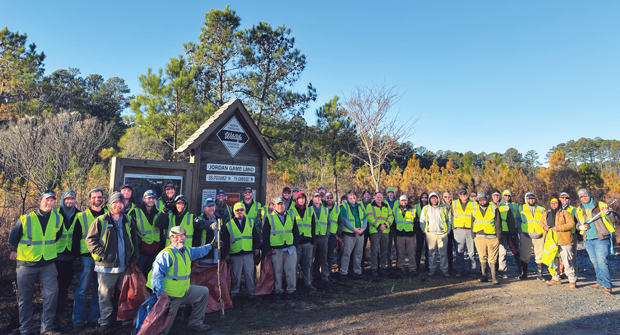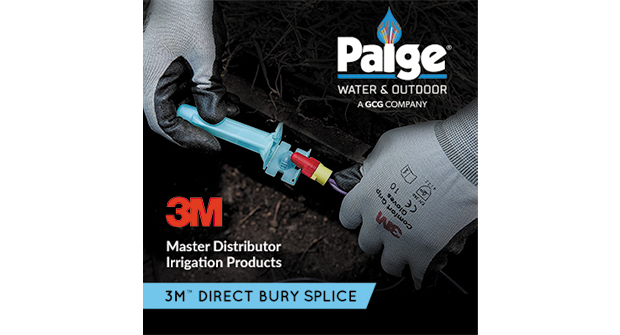Kurt and Matt Bland know what people see when they look at Bland Landscaping, a company founded by their father, Tom, in 1976.
They see a company that has grown as fast as any in the country, buoyed by a focus on fundamentals, private equity support and a strategic approach to growth. They see a company that has expanded beyond its origins in Raleigh-Durham to include other North Carolina locations in Charlotte, Greensboro and Wilmington, two in South Carolina and one in Florida.

They also see a company that has experienced regular double-digit revenue growth in recent years and an accompanying meteoric rise up the annual LM150 rankings. In 2024, Bland reported $86.3 million in revenue — a 33-percent increase over the previous year — which earned them the No. 45 spot on the 2025 rankings. Five years ago, the company was at No. 88 on the list with revenue just over $25 million.
What they don’t see, Kurt and Matt will tell you, is all that it took to get to this point. The struggles they faced when they took over the business in 2005 after their father stepped away to take care of their mother, Nancy, who was battling cancer. The economic hardships that battered the company during the Great Recession. The challenges they faced when reinventing the company from one that provided commercial design, installation and maintenance services to one that now focuses almost exclusively on commercial maintenance.
“Going through the loss of our mother, the recession, having to reinvent the business … those were like merit badges when we walked into the private equity world almost eight years ago,” says Kurt, company president. “When we had our first meetings with (investors), they didn’t want to talk about landscaping. They wanted to talk about what we’d been through, the scars on our backs, the lessons we had learned.
“Those are the type of things investors look at and say, ‘If you can figure things out then, we’re confident that you can figure it out if those kinds of things happen again and, maybe more importantly, how to prevent those kinds of things from happening in the first place. You can keep things moving in the right direction.”
Father knows best
Kurt was six months old when his father started the company — Matt is two years his junior — so it’s no stretch to say the brothers grew up in the landscaping industry. Despite that, there were no guarantees that the pair would eventually run one of the fastest-growing outfits in the country.
Sure, both spent their formative years working for the company. Kurt even took to the work enough that he majored in agricultural business and horticulture, while Matt pursued a finance degree.
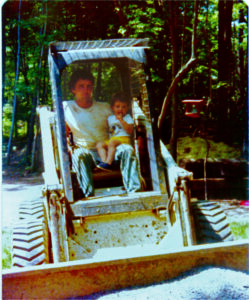
But when the two brothers shared an apartment at North Carolina State during Kurt’s final year of college, their late-night conversations about what they wanted to be when they grew up didn’t always focus on taking over the family business.
“Matt and I would sit up in the evenings after going out with friends and talk about whether either of us was serious about coming back to the business,” Kurt says. “We didn’t always agree about that. But it was an opportunity to talk about it without our parents around and think about what the potential could be.”
Not that anything would be put on a silver platter for them if and when they decided to return to the family business. “My mom and dad wanted us to have experiences, to stand on our own and decide if we really wanted to come back to the business,” says Matt, who serves as Bland Landscaping’s chief financial officer, chief operating officer and senior vice president. “I think they wanted us to, but they also wanted us to know there were other things out there if we were interested.”
So, after college, they both tried their hands at those other things. Matt took a job as a financial analyst for IBM, while Kurt headed west for an office manager position with Del Conte Landscaping in Fremont, Calif.
Eventually, though, the allure of home and the possibilities of what Bland Landscaping could become won out. Kurt returned to North Carolina in 2002, and Matt left IBM a year later to return to North Carolina and the family business.
Starring roles
Less than two years after returning to North Carolina and Bland Landscaping, Kurt and Matt found themselves running the company. To focus his attention on their ailing mother, Tom stepped away from the business at the end of 2005.
“And when I say stepped away, I mean he told us what he was doing one week and then the next he was traveling with mom and spending time with her between chemo treatments,” Kurt says. Sadly, Nancy passed away in December 2006.
The company Kurt and Matt inherited bore little resemblance to the one they helm in 2025. Like today, it was primarily focused on commercial clients — “That was largely by design,” Kurt says, “because that’s all our father was interested in. He had come from a commercial construction background. He loved that type of work.” But unlike today, about half of its nearly $10 million in annual revenue came from design and installation back then, the other half from ongoing maintenance.
Then, the Great Recession hit in 2008. That design and installation work dried up almost immediately, which forced two rounds of layoffs just to keep the company’s figurative head above water. Both Kurt and Matt knew that charting a new path was no longer an option. It was a necessity.
“2008 was definitely a reality check,” Matt says. “We realized that we didn’t know as much as we thought we did, and that restructuring the business was something we had to get serious about.”
Fortunately, the company had strong bones despite the struggles it faced during the Great Recession. “We didn’t have any debt, we had a strong balance sheet, and we had opportunities in a lot of areas to grow,” Kurt says. “As I looked at it, we had one shot to fix things and to put those things to work for us.”
Brave new world
For Bland Landscaping, those fixes happened on several fronts. First, the company made a strategic decision to direct almost all its efforts on commercial maintenance, largely eschewing the design and installation, irrigation and tree work that had been a part of the company’s portfolio previously. Today, commercial maintenance represents 87 percent of Bland Landscaping’s total revenue.
Next, the company expanded its definition of “commercial” to include homeowners’ associations (HOA) and more institutional clients. “We didn’t do any of that before,” Kurt says. “But we started pricing our first HOA maintenance contracts in 2010, which today makes up over half of what we do.”
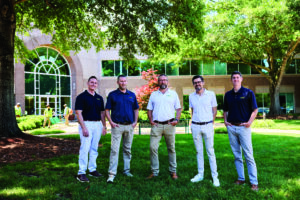
Joe Ritchie, Kurt Bland, Matt Bland and Tyner Tew. (Photo: Geoff Wood)
Once those changes had taken hold, Kurt and Matt turned their attention to a third front — mergers, acquisitions and the introduction of private equity funding. The duo had always had designs on growing Bland Landscaping into a company with a regional presence in the Southeast. But both admit to being “debt-averse,” so they proceeded with caution as they assessed ways to achieve those goals.
Enter private equity. In December 2017, the company partnered with Prospect Partners to begin turning those expansion dreams into reality. In the seven years that followed, Bland Landscaping tripled in size and grew to 10 locations in North Carolina and two more in South Carolina. And In November of last year, right before Bland Landscaping’s acquisition of Koehn Outdoor to expand its footprint into Jacksonville, Fla., the company recapitalized with a new private equity firm, Comvest.
“It’s a big paradigm shift,” Kurt says of the introduction of private equity support. “It requires getting comfortable with a lot of big ideas.”
“Everything just accelerates when you start to bring in private equity, both good and bad, and you have to be ready for that,” Matt says. “The problems show up faster, but as we’ve found, the solutions also show up faster.”
Culture club
While the influx of private equity support has changed the pace of Bland Landscaping’s growth, it hasn’t changed the way Kurt, Matt and the rest of the company’s senior leadership team — Joe Ritchie, vice president and general manager; Tyner Tew, vice president of sales, and Adam Gilpatrick, vice president of finance and accounting — view the company’s values and culture.
To a person, each will tell you that Bland Landscaping remains focused on the fundamentals of the business, on staying disciplined when it comes to growth — both organically and through acquisitions — and on creating a people-first workplace that supports and develops the company’s employees.
“For us, company culture and values aren’t negotiable,” Kurt says. “Our mission statement is the same as it was 25 years ago … and our core values remain honesty, integrity, progressiveness, professionalism and excellence. No matter how big we get, I don’t see those ever changing.”
Tew says that approach is unique among the companies he’s worked for throughout his career.
“We want to … take care of our people so they can take care of our customers,” Tew says. “Other groups do cookouts, employee raffles, etc., but Bland has been leading in the ‘taking-care-of-people’ category since Tom started the organization over 49 years ago. That is way more common here compared to anywhere else I have been affiliated.”
Ritchie emphasizes that culture and values drive the company’s growth and not the other way around as can happen in some circumstances. “Growth at Bland isn’t just about numbers. It’s about developing people, expanding our capabilities and strengthening relationships,” he says. “It’s a reflection of how well we take care of our employees and our customers. If we continue to do right by both, growth comes naturally and sustainably.”
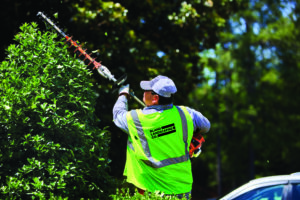
And at the end of the day, both Kurt and Matt are confident that discipline, the culture and those values will serve as the foundation for Bland Landscaping’s continued growth and its continued climb up the annual LM150 rankings.
“Our true north — or true south, in this case — is to stay focused on acquisitions and the growth of our commercial maintenance business in the southeastern United States,” Matt says. “We’re not trying to grow north into snow markets. We’re not trying to grow west of the Mississippi. We just want to maintain our discipline and continue to do what we think we do well.
“It’s worked for us so far, and we’re confident that it’s going to keep working for us.”
Editor’s Note: The 2025 LM150 list is sponsored by Aspire Software, John Deere and Weathermatic.
Read more LM150:
